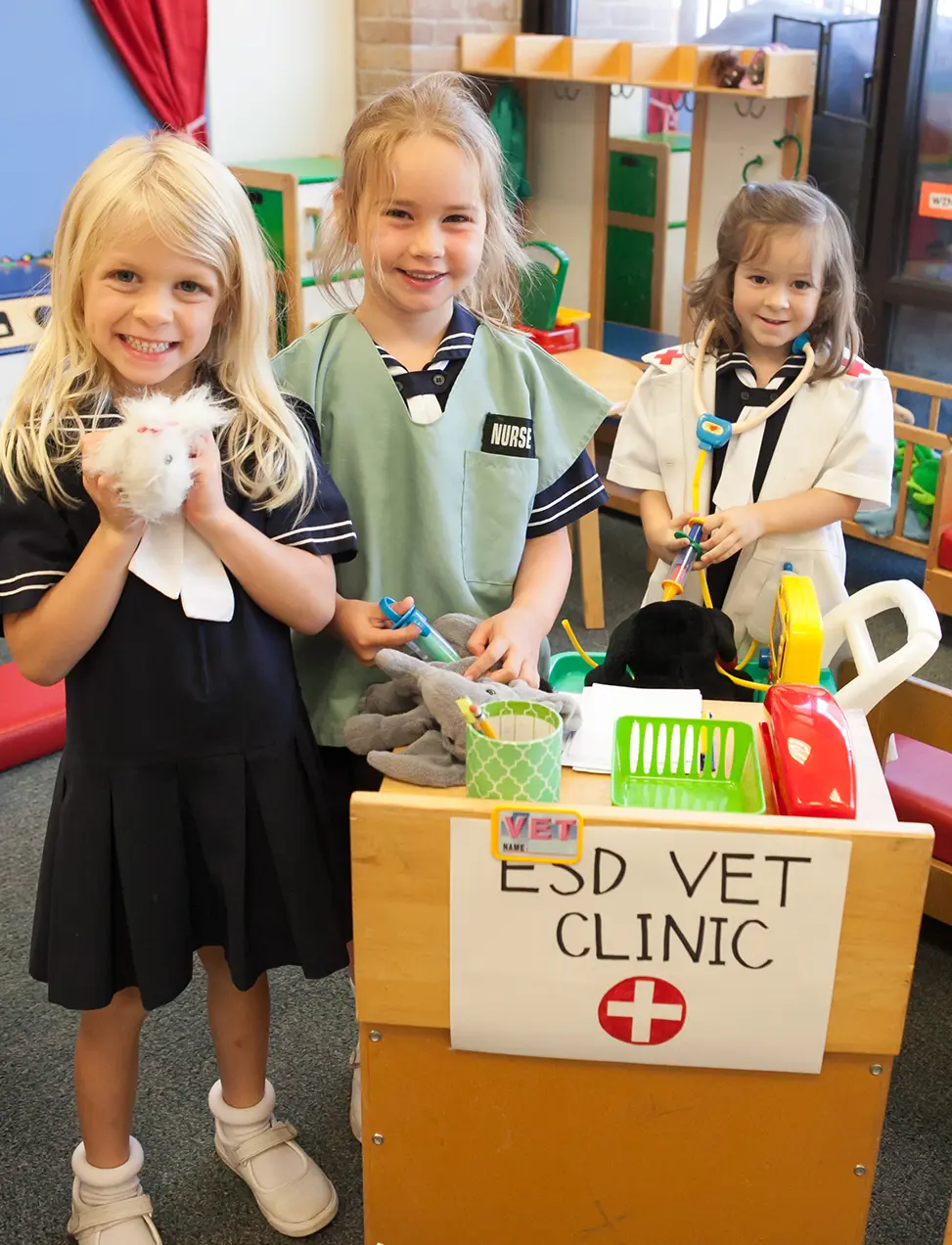Nurses' Station
We believe all students should be healthy, safe, and ready to learn all day, every day. We are fortunate to have three registered nurses who are available to our students, faculty, staff, and visitors throughout the school day to optimize health, safety, and learning.
ESD's nursing staff strives to:
- Implement a comprehensive program of health services for our campus in an empathetic, supportive, and confidential manner.
- Provide health services to students, faculty, staff, and visitors.
- Promote health education and preventative health practices for students.
Please fill out a copy of the 2024-2025 Physical Form and upload it to your student's Magnus chart by August 1, 2024. Forms should not be returned to the school. All students must have a new physical every year. Please note that your Magnus Health Portal login uses the same credentials as your Veracross Parent Portal login.
Login to your Veracross Parent Portal to connect to Magnus Health
Magnus Health is our secure web-based electronic medical record system and is HIPPA and FERPA protected.
FAQs
| What are the clinic hours and services provided to the ESD community? |
|---|
|
The ESD Health Services team is available to provide traditional school health services to our ESD community from 7:30am - 4pm on school days. The Health Services team works to improve each student’s health by providing or assisting with the following:
|
| If my child is being sent home from school early, how long can they stay at the clinic? |
|
We undertand that there might be extenuating circumstances that prevent a timely retrieval from the school clinic, but we ask that you please make arrangements to pick up your sick student within 30 minutes of the request. |
| When should I keep my child home from school with cold or flu symptoms? |
|
If your child is exhibiting cold or flu symptoms, please keep them home from school. If your child has a cold, the decision to keep them home may depend on the severity of symptoms. Keep your child home if they have a fever of 100 ̊ or higher. **Students must be fever-free (less than 100) for 24 hours without the aid of a fever-reducing medication before returning to campus.** |
| If my child does have the flu or a bad cold, how long should I keep him/her home from school? |
| Parents should keep their sick child home from school until the child is fever-free (temperature under 100 ̊) without the use of fever-reducing medication for 24 hours to prevent spreading illness to others. Do NOT give your child any medicines containing ASPIRIN. |
| What are the return-to-campus guidelines? |
|
| What should I do to help prevent the rest of the household from getting sick? |
|
Teach and Practice Healthy Habits: Wash your hands often with soap and warm water for at least 20 seconds. You may help prevent the flu from spreading at home by disinfecting (lysol or similar spray) frequently-touched surfaces, toys, and other commonly shared items. |
| What is ESD's stance on vaping? |
|
Because ESD advocates partnering with our families and supporting our students in making good choices for themselves, we feel it is important to share our concern about a growing trend and major public health concern among teenagers: the use of e-cigarettes and vaping or juuling. Schools across the country are dealing with issues related to the usage of e-cigarettes and the harm they may cause. As of September 1, 2019, the legal age for purchasing, using, or possessing cigarettes, e-cigarettes, and tobacco products is 21 years of age in the state of Texas. Possession of tobacco products (including vaping devices) by a minor is considered a Class C misdemeanor. The ESD Upper School Handbook states, “The Episcopal School of Dallas supports and adheres to all State and Federal laws regarding the use of any controlled substances, including alcohol and vaping (page 58).” For more information, view the CDC guidelines and State of Texas guidelines. |






